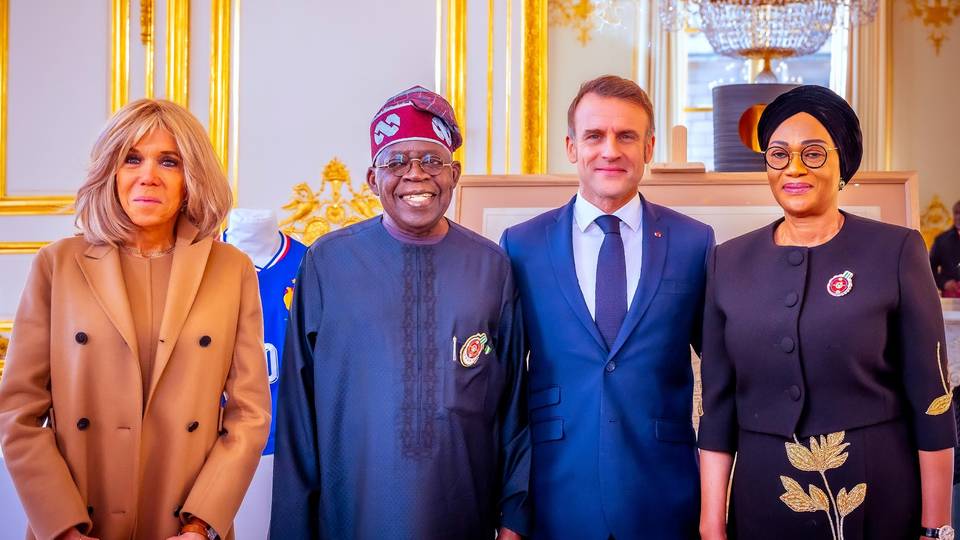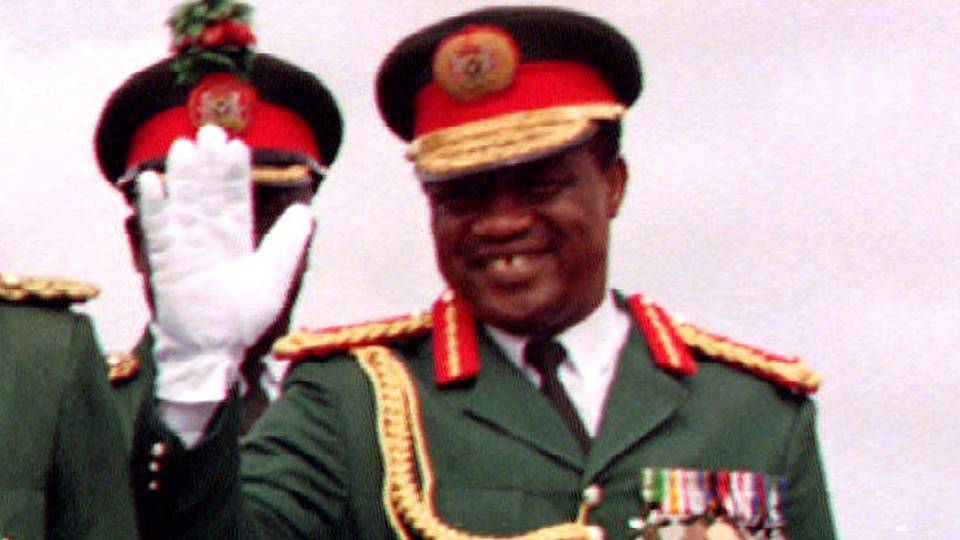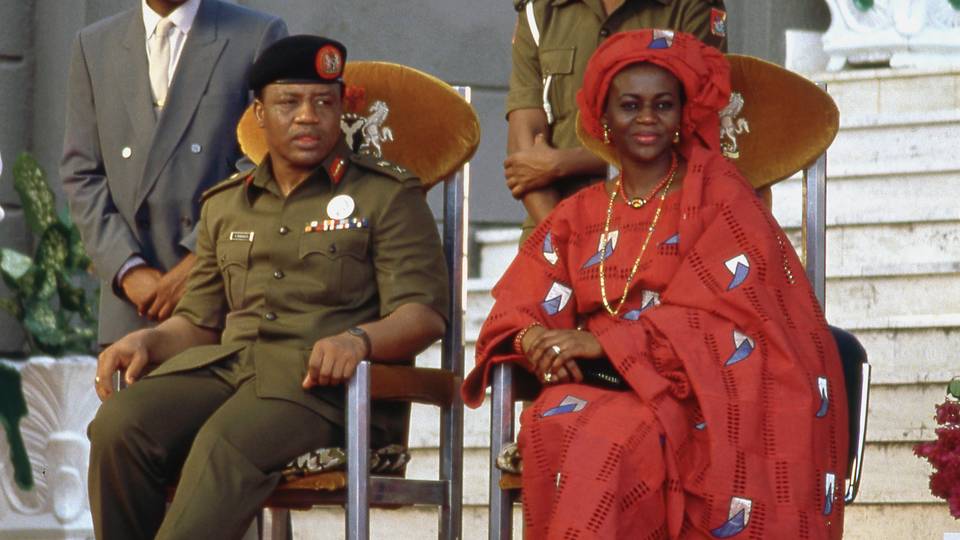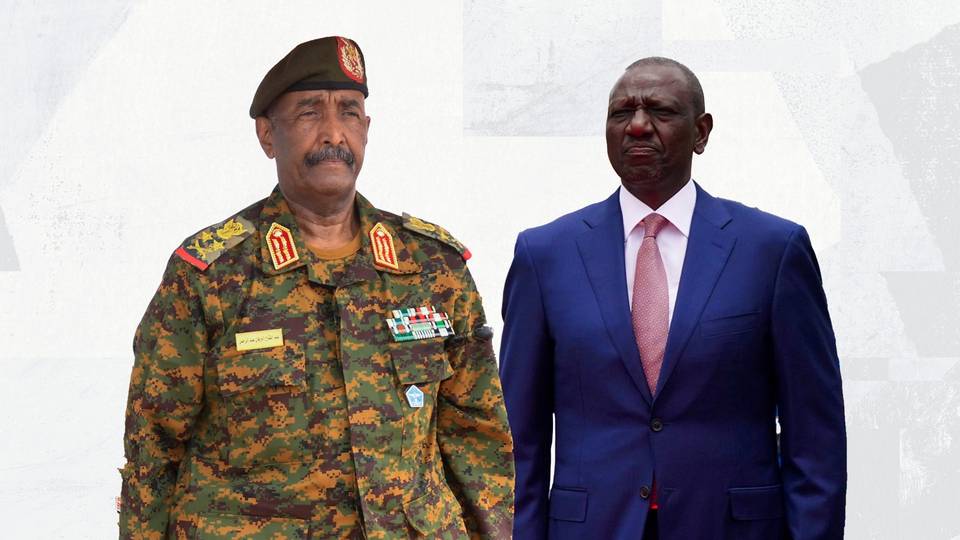Sport
Dollar
40,0159
0.1 %Euro
47,0089
0.35 %Gram Gold
4.275,7200
-0.31 %Quarter Gold
0,0000
%Silver
0,0000
%Nigeria and France's relationship was strengthened by President Bola Tinubu's November trip to Paris, alarming those who see it as going against the trend of other countries in the region severing ties with their erstwhile colonial oppressor.

By Abdulwasiu Hassan
France, whose colonialist iron hand once held sway over large parts of Africa, is learning to its cost that the continent is no longer willing to be dictated to.
The European nation's diplomatic relations with sub-Saharan Africa have hit a nadir, with countries like Senegal and Chad forcing shut French bases within their territories or severing military ties in the wake of Niger, Mali, and Burkina Faso deciding they want to have nothing to do with their former colonial ruler.
"Chad for us, France out!" thousands of protesters shouted in unison during a December 6 march through the Chadian capital of N'Djamena and the city of Abeche. The previous week, the government declared it would end a defence cooperation agreement with France to assert its "full sovereignty" and redefine its strategic partnerships in line with national priorities.
Amid the rip tide of anti-French sentiment sweeping through the Sahel, France has been trying to ride piggyback on Africa's most populous country, Nigeria, much to the consternation of a large section of citizens and observers that see the blossoming of a relationship with the erstwhile coloniser as being fraught with risks.
Nigerian President Bola Tinubu is the current head of the West African regional bloc, ECOWAS, and observers say France's move to strengthen relations with Nigeria is an attempt by the former colonial ruler to maintain some influence in the region.

President Bola Ahmed Tinubu, who made a three-day trip to France in the last week of November, was fawned upon in Paris. His French counterpart, Emmanuel Macron, led the state reception with a dollop of social media diplomacy that some saw as bordering on desperation.
Macron used to be an intern at the French embassy in Nigeria's Lagos in 2002 when Bola Tinubu was the governor of that state. However, the welcome accorded to Tinubu and the bilateral agreements signed during his stay in France suggest the camaraderie was more than just a rekindling of the Lagos connection.
There is more than a modicum of outrage over Nigeria's newly forged friendship with France, which many on the continent still see as an opportunistic aggressor.
According to Dr Aminu Hayatu, a political science researcher at Bayero University in Kano, it’s a tightrope walk for the West African powerhouse.
"France is facing a difficult situation in Africa as it attempts to recolonise, which in the modern context means increasingly re-strategising to take advantage of an evolving global system. It's not just France; some other Western powers are doing the same," he tells TRT Afrika.

"While Nigeria might gain access to French technology, there is no overlooking the danger of France's opportunism coming into play," he says.
Apprehensions galore
The memorandum of understanding signed on the sidelines of President Tinubu's visit mentions that the two countries "will collaborate on research, training and Franco-Nigerian students’ exchanges for knowledge and skills transfer". The agreement also involves cooperation in utilising Nigeria’s mineral resources.
Nigerians familiar with the colonial torment of the past and the overbearing postcolonial influence of France in parts of Africa are wary of any agreement with the European power.
Soon after the announcement of the deal, many Nigerians expressed outrage and fear over possible takeover of the country's mineral sector by France, as it did in several other countries in the region.
The Nigerian government was forced to issue a statement attempting to downplay the feared risks. "The French are not taking over Nigeria's mineral sector," the Special Adviser, Media and Public Communication to President Tinubu, Sunday Dare, said in the statement.
However, there is palpable apprehension in Nigeria, particularly in the northern part of the country that borders Niger, one of the African states that still bear the wounds of French colonialism and its aftermath.
Sahel's cautionary tale
The overarching feeling among citizens of Mali, Burkina Faso and Niger is that France's continued presence, even after independence, compounded their security challenges rather than easing them.
Nigeria's history with France may be different, but the burdening thought of what happened in the neighbourhood over several decades weighs heavy on the public mind space. Unlike the countries severing ties with France, Nigeria was colonised by Britain, not France.
"All relationships have a history and different parameters. The relationship these countries (Mali, Burkina Faso and Niger) had with France is quite different from Nigeria's," Abdulaziz Abdulaziz, senior special assistant to President Tinubu, tells TRT Afrika.
"That these neighbours have issues with France is not enough reason for us to have a problem with it. It doesn't work that way," he explains.
Some analysts say Nigeria shouldn't take its relationship with France at face value, and that the relationship is bound to have a ripple effect beyond the country.
"If other countries in the region perceive Nigeria's growing closeness to France as a threat to them, it may lead to increased tensions and competition within the region," Dr Hayatu says.
Analysts also believe that despite France putting some hope in Nigeria, growing anti-French sentiment and a wave of Pan-Africanist movement in the region mean the terrain remains difficult for the former coloniser.
Comments
No comments Yet




















Comment